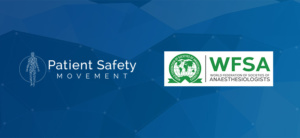MOST patients in East Africa do not get required anaesthesia services during surgery due to critical shortages of practitioners facing the region, The Daily News reports from the region.
 Anaesthesiology, according to the World Federation of Societies of Anaestheologists (WFSA)’s, is the practice of medicine dedicated to the total care of the patient before, during and after surgery.
Anaesthesiology, according to the World Federation of Societies of Anaestheologists (WFSA)’s, is the practice of medicine dedicated to the total care of the patient before, during and after surgery.
Anaesthesiologists are also experts in resuscitation, pain management and intensive care,” the federation explains online. However, the federation’s 2015-16 survey indicates that most of Sub-Saharan Africa composed of all East Africa member states, there’s just one trained provider per every 100,000 population.
Currently, the EAC is home of more than 150 million people, composed of six countries, namely; Tanzania, Kenya, Uganda, Rwanda, Burundi and South Sudan.
“In high-income countries … we’re used to ratios of 20 per every 100,000 population or higher, and we experience very low mortality … yet in low income countries we actually have examples of there being 1,000 times fewer trained providers and 1,000 times higher mortality rates,” the WFSA survey findings indicate in a report titled, “Landmark online resource tool mapping the global anaesthesia workforce highlights huge shortages in human resources.
“The WHO (World Health Organisation) 2014 Executive Board report focused on “Strengthening emergency and essential surgical care and anaesthesia as a component of universal health coverage,” estimates that every year, more than 234 million surgical procedures are performed globally.
The WHO report indicates that surgery still involves high rates of morbidity and mortality whereas “at least seven million people a year experience disabling surgical complications, from which more than one million die.
“Asked how Tanzania is going to tackle the situation, Community Development, Gender, Elderly and Children (MoHCDGEC), Permanent Secretary Dr Mpoki Ulisubisya told the tabloid that the country has short and long term plans to deal with the matter.
In the short term plan, according to Dr Ulisubisya, the country is currently striving to make sure that at each health centre, there are at least two trained anaestheologists at Kilimanjaro Christian Medical Centre and Bugando Hospital.
“24 anaestheologists in the country are very few… but the country is expecting to increase to 34 since we expect 10 who will graduate soon.” The PS added.
However, Dr Ulisubisya, a trained anaesthesiologist, added that in 5-10 years to come, Tanzania is planning to have at least one such specialists with masters degree in each region to boost the anaesthesia services in the country.
Last week, Dr Ulisubisya told reporters that Tanzania has only 24 anaestheologists out of 2,000 needed. He said the shortage of the anaestheologists is a problem to most of African countries and in Sub-Saharan and only Kenya, Uganda, Ghana, Zimbabwe and South Africa have at least good number of the specialists though not sufficient as well.
Kindly follow us on twitter:@AfricanVoice2












